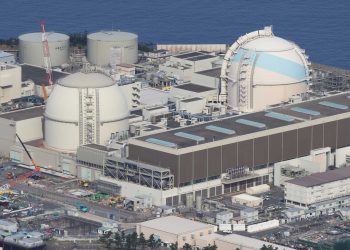,
Crucial six-nation talks aimed at convincing North Korea to give up its nuclear program have resumed, just over two months after the reclusive nation conducted its first atomic test.
Top envoys from the six nations — host China, the two Koreas, the United States, Japan and Russia — began their talks on Monday morning, with each delegate making a 10-minute speech to outline their positions.
“The issues that we will discuss at the talks are of a profound and complicated nature,” Chinese envoy Wu Dawei said in his opening remarks.
Wu said the top priority this week was to discuss a six-party deal struck in September last year in which North Korea agreed to give up its nuclear program in return for security guarantees, energy benefits and other aid.
North Korea pulled out of the six-nation talks in November in protest at US financial sanctions imposed against it, then stunned the world with its nuclear test on October 9.
But although North Korea agreed to return to the talks, it has given no indication it is prepared to surrender its atomic weapons so soon after gaining such a powerful geopolitical bargaining chip.
The chief US envoy to the talks, Christopher Hill, reaffirmed on Sunday after arriving in Beijing that the main US goal in the negotiations was for North Korea to agree to give up its nuclear program.
“What the DPRK (North Korea) needs to do is to get serious with denuclearization,” Hill said.
“If they get serious with denuclearization, a lot of good things can happen … if they do not get serious about denuclearization, such things will go away.”
Hill said he wanted North Korea to recommit to the September 2005 deal.
But Pyongyang's chief envoy, Kim Kye-Gwan, struck a familiar confrontational tone when he arrived in Beijing on Saturday, blaming a “hostile” US policy against North Korea for the nuclear crisis.
“The nuclear issues cannot be resolved until the United States takes a co-existence policy,” Kim said. “I'm not optimistic about prospects for the six-party talks.”
The opening remarks to Monday's talks from Hill and Kim were not immediately available.
The United States has, according to South Korean media reports, offered North Korea another security guarantee signed by President George W. Bush as part of a package of incentives to tempt it into dropping its program.
While Hill has been cautious about the chances of success, US Secretary of State Condoleezza Rice said last week the United States was aiming for a denuclearized North Korea by January 2009, when Bush leaves office.
But many analysts who have closely followed the six-nation talks say North Korean leader Kim Jong-Il has no intention of surrendering the nuclear program his nation has spent decades developing.
“North Korea giving up its nuclear weapons will never happen,” said John Feffer, the global affairs director at the US-based International Relations Center.
“Now that North Korea has the nuclear bargaining chip, it is never going to give it up. And the United States is not in a position to change North Korea's position.”
For North Korea, one of its main goals at this week's talks is to secure the lifting of the US financial sanctions, imposed last year for alleged counterfeiting and money laundering.
The United States had maintained the sanctions should not be brought into the six-party forum, insisting they were a law enforcement issue unrelated to the North's nuclear program.
But following the nuclear test, Washington agreed to discuss the sanctions in the forum, a crucial compromise that led to Pyongyang agreeing to return to the talks.
The United Nations imposed broader sanctions on North Korea following its nuclear test. However Pyongang has not publicly made the same demands for the lifting of those sanctions.









